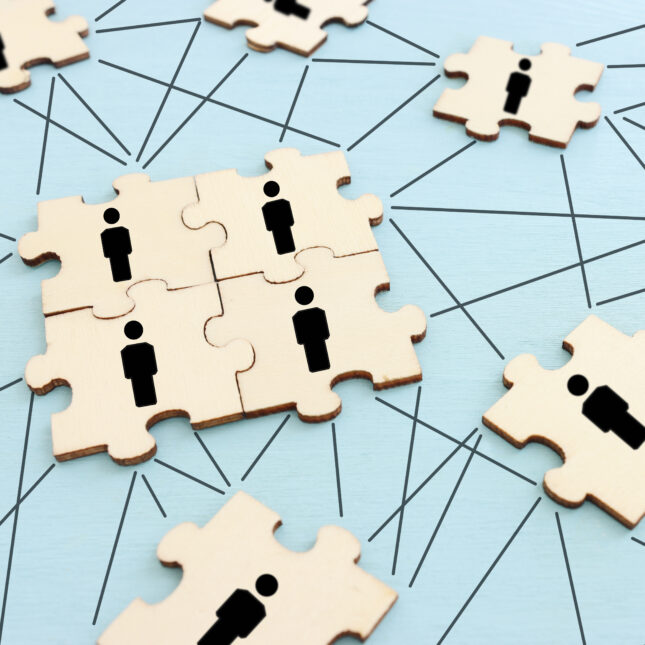Cancel Culture Linked to Increased Suicide Risk in Students
The Dark Side of Cancel Culture: How It Impacts Student Mental Health
In today’s world, the phrase “cancel culture” seems to be on everyone’s lips, from social media feeds to university campuses. It often conjures images of public shaming or boycotting those who have made an offensive remark. But the repercussions extend far beyond the initial fallout, and troublingly, they are hitting our students right where it hurts: their mental health. Recent discussions have begun linking cancel culture to a disturbing rise in suicide risk among students. Let’s delve into this pressing issue, understand its implications, and consider the broader context of social dynamics in the age of the internet.
Understanding Cancel Culture
So, what exactly is cancel culture? Think of it as a societal mechanism that calls out individuals—often in the public eye—for behaviors or statements deemed unacceptable. This can range from actors and musicians to everyday people. The punishment usually comes in the form of social media backlash, loss of job opportunities, or even ostracism from peer groups.
While it might seem like a form of accountability at first glance, there’s a darker layer lurking beneath the surface. As easy as it is to point fingers and rally support behind a cause, we must ask: what happens to the individuals on the receiving end?
The Viral Nature of Cancel Culture
You see, social media is a double-edged sword. On one hand, it allows people to voice their opinions; on the other, it can lead to a relentless cycle of backlash. A single tweet, a misguided comment, or an old photo can resurface and incite a wave of outrage. It’s almost like the internet has given everyone a megaphone—but not the ability to be empathetic.
This collective outrage can spiral, often turning into a digital mob mentality where the stakes are incredibly high for those targeted. Imagine being a student who accidentally stepped out of line during a discussion. Suddenly, you’re facing a barrage of nasty comments, calls for your expulsion, and isolation from classmates.
The Ripple Effects on Mental Health
As we dissect the psychological toll of cancel culture, let’s highlight a few key factors that contribute to increased suicide risk among students:
1. Isolation and Loneliness
Being targeted can lead to social isolation. Friends might distance themselves for fear of being associated with someone “problematic.” As a result, the student is left feeling alone, which can exacerbate feelings of anxiety and depression. Think about how devastating it is to feel like you have no one to turn to. It’s like being stranded on a deserted island, hoping to be rescued but feeling invisible.
2. Fear of Judgment
The never-ending pressure to avoid any type of misstep can create an environment steeped in anxiety. What if I say the wrong thing? What if I’m canceled next? Such thoughts can consume a student’s mind, leading to self-censorship. This constant monitoring of their behavior not only stifles self-expression but also fuels mental struggles.
3. Academic Pressure
Combining the stress of academics with the effects of cancel culture is like pouring gasoline on a fire. Students worried about their reputations may find it increasingly difficult to focus on their studies. This can lead to declining academic performance, which in turn can lead to feelings of inadequacy—the perfect storm for depression.
Real-Life Consequences
Research has started to reveal the troubling outcomes of this culture. Reports indicate that several students have experienced severe mental health crises directly related to being “canceled.” Some have voiced that the experience felt like a death sentence to their social lives. And when you feel like the world is against you, how do you even take the next step forward?
When a student’s mental health deteriorates to such an extent that thoughts of self-harm or suicide emerge, we can’t overlook the harsh reality that cancel culture played a role in that trajectory. This makes it imperative for institutions to foster environments of support and inclusivity.
The Role of Educational Institutions
Universities and colleges bear a significant responsibility in mitigating these effects. While the online world may seem unstoppable, educational institutions can create a sanctum for students to express themselves without the fear of backlash. Here are a few ways schools can help:
-
Promote Open Dialogue: Encourage discussions that allow students to voice their opinions while teaching them the importance of empathy and respectful disagreement. Workshops that focus on conflict resolution can empower students to handle differing viewpoints constructively.
-
Mental Health Resources: Increase the availability of mental health services, such as counseling and peer support groups. Students often struggle to reach out for help, so proactive outreach is essential.
-
Crack Down on Cyberbullying: Implement clear policies on how the school will manage incidents of harassment or bullying related to cancel culture. Establishing guidelines can help create a more compassionate community.
A Call to Action
As students, friends, and family, we must advocate for a balanced approach to accountability that fosters understanding rather than ostracism. While it’s critical to challenge harmful behaviors, we need to remember the humanity behind each individual. Cancel culture’s ripple effects can devastate lives, often with irreversible consequences.
So, how can we shift the narrative? By embracing compassion, dialogue, and understanding, we can start to mitigate the dangers of cancel culture. What if, instead of canceling, we helped educate? What if we chose to lift rather than tear down? When we choose empathy over judgment, we pave the way for a healthier dialogue and protect the mental well-being of our fellow students.
Conclusion
As we grapple with the complexities of cancel culture, it’s crucial to recognize its multifaceted impact on mental health among students. This issue demands our attention and immediate action. The fallout from cancel culture can lead to tragic outcomes, including heightened suicide risks. As a society, we must champion empathy, resilience, and constructive dialogue to ensure that everyone feels valued.
By fostering understanding rather than outrage, we can begin to reshape our social landscapes, creating spaces where everyone can thrive without the looming threat of cancellation. After all, a vibrant community thrives on diversity of thought and the acceptance of differing opinions. Let’s choose to support one another instead of tearing each other down.
FAQs
Q1: What is cancel culture?
A: Cancel culture refers to the phenomenon where individuals face social backlash, ostracism, or boycotting after being criticized for their actions or statements, typically on social media.
Q2: How does cancel culture affect student mental health?
A: It can lead to feelings of isolation, anxiety, and stress as students fear social repercussions, which may increase risks of depression and suicidal thoughts.
Q3: What role do educational institutions play in addressing cancel culture?
A: Schools can foster open dialogue, provide mental health resources, and implement policies against bullying to create a supportive environment for students.
Q4: How can we combat the negative effects of cancel culture?
A: By promoting empathy, understanding, and constructive dialogue rather than judgment, we can help create a healthier social dynamic.
Q5: What are some resources for students struggling with mental health?
A: Students can reach out to on-campus counseling services, peer support groups, or helplines dedicated to mental health assistance.






